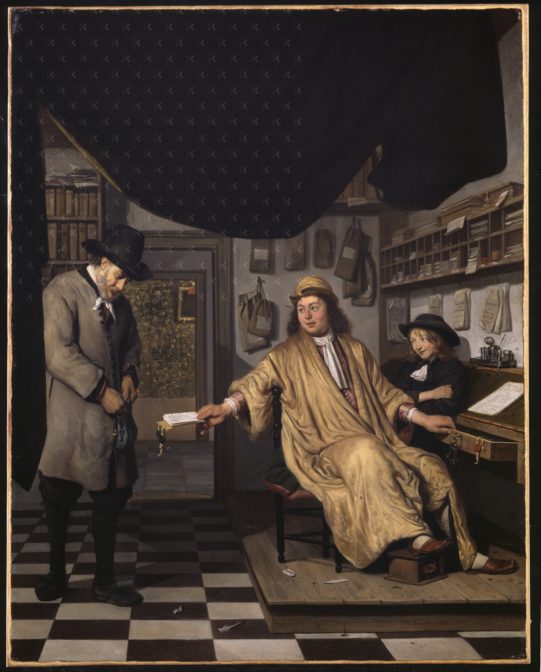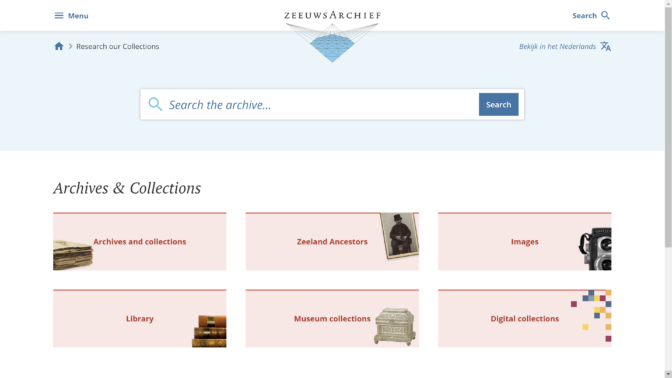Here is an overview of the new sources, projects, and news about archives that were announced last month.
Online sources
- The Bosch’ Protocol, the court records of ‘s-Hertogenbosch, has been indexed and is now searchable for the periodd 1501-1793 via the Erfgoed ‘s-Hertogenbosch website. Volunteers entered 350,000 records from 27,000 scans.
- Court records from West-Friesland, including the courts of Enkhuizen, Hoorn, Medemblik, Grootebroek and Sijbekarspel, have been digitized and are available via the finding aid at the West-Fries Archief website. The records cover the period 1357-1811.
- Transcriptions of several real estate tax records from the Achterhoek have been added to GenealogieDomein.
- An index and scans of muster rolls of trainees of the Royal Dutch East Indies Army has been added to GahetNA.
- Indexes of birth records of Hasselt (1860-1884), Heino (1849-1869, 1893-1902), and Kampen (1860-1870) have been added to WieWasWie and Archieven.nl.
- Indexes of death records of several places in Noord-Brabant for the 1950s and 1960s have been added to the Brabants Historisch Informatie Centrum website.
- Population registers of Made en Drimmelen have been indexed and can be searched and viewed as scans at the website of the Regionaal Archief Tilburg.
- Notarial records of Terheijden (1812-1925) have been indexed and are now available via the Regionaal Archief Tilburg website.

Websites
- The Zeeuws Archief has a new website. The website includes all the information from the previous website, from Zeeuwen Gezocht, and has new finding aids (in Dutch) on a range of topics.
- WieWasWie, the website where many archives publish their genealogical information, has added links to possibly related records to the results.
- A new website, WO2GLD.nl, launched to provide documentation about 1300 Gelderland towns in World War II.
- A new website presents a one-place-study of Delft and Rijswijk 1812-1940.
Archives
- The Regionaal Archief Tilburg acquired baptismal and marriage registers from the Roman Catholic parishes of ‘t Heike and ‘t Goirke. These records formerly belonged to the diocese of ‘s-Hertogenbosch and were turned over to the Brabants Historisch Informatie Centrum in 2012, which now turned them over to Tilburg. The registers will be digitized. [Source: RAT]
- The municipality of Ten Boer will be merged with Groningen as of 1 January 2019. The records of Ten Boer will be turned over to the Groninger Archieven. [Source: Groninger Archieven]
Projects
- The Historisch Centrum Overijssel announced a digitization project of the Death Duties Files from 1818-1926. These records won’t be available in the reading room during the digitization. [Source: HCO]
- The indexing project of the Amsterdam notarial records is going well: more than 250,000 records have already been indexed. Interesting discoveries are made: the records of notary Harm Grapheo from the 1580s, previously thought lost, were found among the records of Pieter van Perssen. Previously, all records of Grapheo were believed to have been lost. [Source: @paulinacollina 1, 2]
- The Chamber of Commerce records of Amsterdam are being digitized by the Noord-Hollands Archief. [Source: NHA]
- The Noord-Hollands Archief has started a chat pilot. On Monday (1-4 PM), Wednesday (7-10 PM) and Friday (7-10 PM), you can chat with an archivist via the Noord-Hollands Archief website. This will allow you to easily ask questions about your research. [Source: NHA]
- The project “Thuis in Terneuzen” [At home in Terneuzen] has started. The goal of the project is to index the population registers of Terneuzen. Volunteers can help at the Vele Handen website. [Source: Provinciale Zeeuwse Courant]

Public notary in his office. Credits: Job Berckheyde, collection RKD.



Hello, I enjoyed reading your 25 years story. I started doing my family history in 1997. In 2010 after my Dutch mother in law passed away I decided to do my husband’s Dutch family history. Of course I don’t read or write Dutch so an elderly Dutch neighbour helped me with translations. I managed to get both of my husband’s family Kelderman and Bemelaar researched. It was an interesting journey. Included was his mother’s family Bemelaar from Utrecht and his father’s family Kelderman in Rotterdam. WW11 found Jan Kelderman as a soldier fighting for his country. After the war he moved to Jakarta to be a custom’s agent. His wife Wilhelmina was married by proxy and moving to Indonesia as well. After the birth of 2 children Ludmilla and my husband Robert found the small family moving back to Holland due to political struggles in Indonesia. Once in Holland they found it very bleak and decided to immigrate to Canada. Life was not so easy there either, language barrier as well as not knowing anyone. Leaving family and friends in the “old country” they perservered. With a family of 6 now, Nico born in Holland then Raymond born in Vancouver, Canada.Struggles to find work in a new land made life difficult. Other members of the Kelderman family in Holland immigrated . One brother to Auckland New Zealand, then another brother to Johannesburg, South Africa. 2 sisters remained in Holland. Mimi married but Narda did not.
Finding the family history has brought this family together once again. I enjoyed reuniting family for my husband. Gives a person a better sense of themselves I find.
Thank you and all the genealogists for making the research and records available. The Internet has changed many lives and made the world a smaller place.